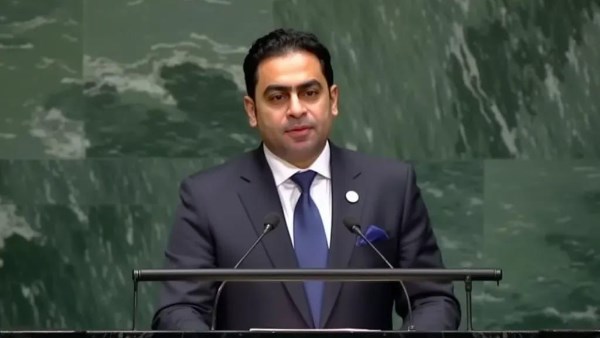Dr. Mohamed Hamza Al-Husseini, an economic expert and advisor to the Egyptian Association at the United Nations, commented on recent statements by Alex Segura Oberjans, the IMF’s resident representative in Egypt, which sparked widespread debate. Some interpreted the remarks as a distancing from pressuring Egypt’s government, while others saw them as reflecting confusion over precise economic terminology.
Al-Husseini clarified that although the IMF does not explicitly demand higher fuel prices, it promotes alternative policy language such as subsidy reform, market flexibility, and price adjustments based on supply and demand dynamics.
He explained that the economic reform program agreed upon between Egypt and the IMF includes a clear framework for financial restructuring, involving the gradual removal of subsidies on essential commodities like diesel, gasoline, and electricity. The objective is to align domestic prices with global market levels, thereby freeing up fiscal resources for the government and ensuring that financial support reaches targeted beneficiaries more efficiently.
The apparent contradiction between the IMF official’s statement and the organization’s broader policies lies in the timing of implementation. While the IMF envisioned a phased price adjustment extending through the end of 2025, the Egyptian government opted for an accelerated approach, implementing a significant price adjustment in October 2024. This explains Prime Minister Dr. Mostafa Madbouly’s recent announcement that the October increase might be the last major hike before the automatic pricing mechanism takes effect, linking fuel prices directly to fluctuations in Brent crude oil prices and the U.S. dollar exchange rate.
Al-Husseini noted that the Prime Minister confirmed the government will continue partial diesel subsidies due to its critical role in key sectors such as agriculture, transportation, and industrial production, as well as its direct impact on inflation rates. He emphasized there are no current plans for additional price increases once the automatic pricing system is fully operational.
He added that the IMF has expressed willingness to extend the subsidy phase-out timeline until December 2025 to mitigate the impact on low-income households. Meanwhile, recent government decisions are partly based on forecasts indicating a potential decline in global oil prices, which could ease pressure on domestic consumers.
— news from (صدى البلد)
— News Original —
اقتصادي: لن تكون هناك زيادة جديدة في أسعار المحروقات بعد أكتوبر 2025
قال الدكتور محمد حمزة الحسيني، الخبير الاقتصادي، ومستشار الجمعية المصرية بالأمم المتحدة، إن تصريح “أليكس سيجورا أوبيرجور” الممثل المقيم الأول لصندوق النقد في مصر، حول عدم مطالبة الصندوق بزيادة أسعار الوقود، أثار جدلًا واسعًا، حيث تباينت التفسيرات بين من رآه تبرؤًا من الضغط على الحكومة المصرية، وبين من اعتبره سوء فهم للمصطلحات الاقتصادية الدقيقة. n nوأضاف “الحسيني”، في تصريحات صحفية له، أن هناك سوء فهم للمصطلحات المستخدمة، موضحًا أن صندوق النقد بالفعل لا يطلب بشكل مباشر زيادة أسعار السلع، ولكنه يستخدم لغة وسياسات بديلة مثل تحرير الدعم، ومرونة السوق، وتحريك الأسعار وفق العرض والطلب. n nوأوضح الخبير الاقتصادي: أن البرنامج الموقع بين مصر وصندوق النقد يتضمن روشتة واضحة لتمويل الإصلاح الاقتصادي، تشمل سياسات رفع الدعم عن سلع مثل السولار والبنزين والكهرباء؛ بهدف وصول أسعارها إلى مستويات تعادل الأسعار العالمية، والهدف الأساسي من ذلك هو إتاحة وفرة في الموارد للحكومة، وتوجيه الدعم إلى مستحقيه. n nوكشف عن أن التناقض الظاهري بين تصريح ممثل صندوق النقد وسياساته؛ يكمن في توقيت التنفيذ، ففي حين كان الصندوق يتحدث عن تحريك تدريجي للأسعار يمتد حتى نهاية عام 2025؛ يبدو أن الحكومة المصرية قررت تسريع هذه الخطوات عبر قفزة واحدة في شهر أكتوبر الماضي، وهذا ما يُفسر إعلان رئيس مجلس الوزراء الدكتور مصطفى مدبولي مؤخرًا أن الزيادة المرتقبة في أكتوبر قد تكون الزيادة الكبيرة الأخيرة، قبل تطبيق آلية التسعير التلقائي التي تربط أسعار الوقود بتحرك سعر خام برنت وسعر صرف الدولار. n nدعم السولار جزئيًا n nأشار الدكتور محمد حمزة الحسيني، إلى تأكيد رئيس الوزراء أن الحكومة ستواصل دعم السولار جزئيًا، نظرًا لارتباطه بقطاعات حيوية كالزراعة والنقل والإنتاج وتأثيره المباشر على معدلات التضخم، نافيًا وجود أي نية أو قرار لأي زيادة أخرى بعد تطبيق آلية التسعير التلقائي. n nوأوضح أن صندوق النقد لا يُمانع في مد الفترة الزمنية لرفع الدعم حتى نهاية ديسمبر 2025؛ لتخفيف الأثر على محدودي الدخل، بينما تستند الحكومة في قراراتها الأخيرة جزئيًا إلى توقعات بانخفاض سعر برميل النفط عالميًا إلى مستويات قد تُخفف الضغط على المستهلك المحلي.
